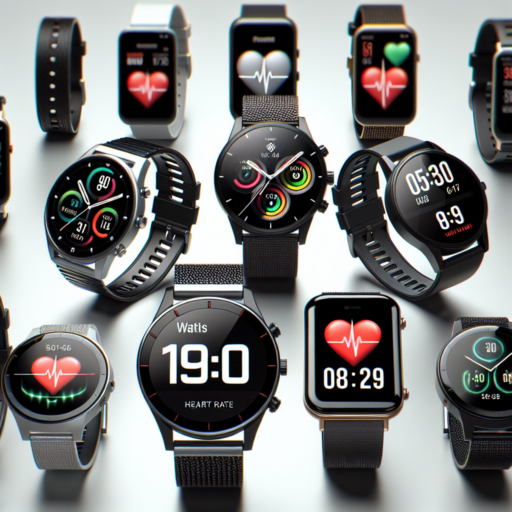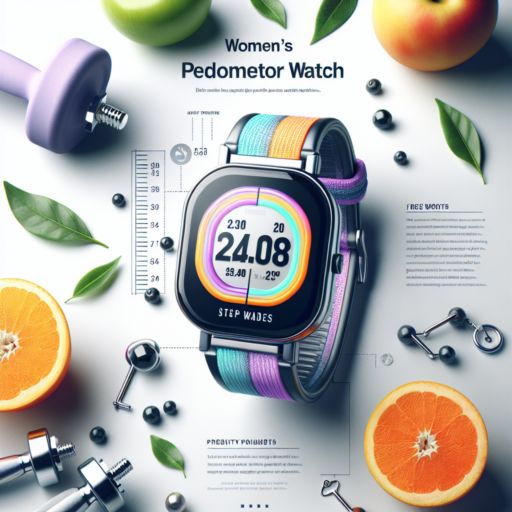What is the best watch for heart health?
Identifying the best watch for heart health hinges on understanding the features that matter most for monitoring and improving cardiovascular well-being. Modern smartwatches have transcended mere time-telling to become comprehensive health monitoring tools. They offer a range of sensors and technologies designed to keep tabs on your heart rate, observe heart rhythms, and sometimes even predict potential heart health issues before they become critical.
When considering a watch for heart health, it’s essential to look for models that offer continuous heart rate monitoring. This feature enables users to track their heart rate 24/7, providing valuable insights into their heart’s behavior during different times of the day and under various levels of activity. Additionally, some advanced watches also feature electrocardiogram (ECG or EKG) capabilities. An ECG function allows the device to assess if the heart is beating at a normal rhythm, which can be crucial for detecting conditions like atrial fibrillation.
Other noteworthy functions include blood oxygen (SpO2) monitoring and stress tracking, both of which can indirectly impact heart health. Oxygen saturation levels can provide insights into how well your heart is pumping oxygenated blood throughout your body, while stress tracking features help you understand how stress might be affecting your heart health. Moreover, the integration of fitness tracking ensures that users can monitor their exercise routines, which is vital for maintaining a healthy heart.
What is cardiac watch?
A cardiac watch is a sophisticated piece of wearable technology designed to monitor various aspects of heart health. Essentially, these devices function by utilizing advanced sensors and algorithms to track heart rate, analyze heart rhythm, and sometimes even detect anomalies such as atrial fibrillation. The primary goal of a cardiac watch is to provide users with real-time insights into their cardiovascular health, enabling proactive measures and fostering a deeper understanding of their overall well-being.
These high-tech gadgets go beyond simple heart rate monitoring. Many cardiac watches are equipped with features like electrocardiogram (ECG or EKG) recording, oxygen saturation levels (SpO2) tracking, and stress analysis, offering a comprehensive overview of the user’s heart function. This wealth of information can be invaluable for individuals seeking to maintain heart health, improve fitness levels, or monitor specific conditions under a healthcare provider’s guidance.
Moreover, the integration of cardiac watches into the everyday lifestyle of users is seamlessly facilitated by their compatibility with smartphones and health apps. This connectivity allows for the continuous tracking of heart health metrics, setting of personal health goals, and even sharing data with medical professionals for more tailored care. The importance of such devices in preventive health strategies and personalized medicine continues to grow as technology advances.
Can a smartwatch detect heart problems?
Smartwatches have revolutionized personal healthcare monitoring, integrating advanced technology to track various health metrics. One prominent feature in many models is their ability to monitor heart rate and identify potential heart problems. However, assessing the accuracy and reliability of these devices in detecting heart-related issues is critical for users relying on them for health insights.
Understanding the Technology Behind Heart Rate Monitoring
Most smartwatches use photoplethysmography (PPG) sensors to measure heart rate. This technology employs light-based technology to gauge the rate of blood flow, thus providing insights into the heart’s activity. By monitoring changes in blood volume under the skin, smartwatches can alert users to irregular heart rhythms, potentially indicative of conditions such as atrial fibrillation.
Limits and Reliability of Smartwatch Detection
While smartwatches offer convenience and continuous monitoring, it’s crucial to acknowledge their limitations. The accuracy of heart rate data can be influenced by factors such as device placement, physical activity, and even skin tone. Therefore, while smartwatches can flag potential heart irregularities, they cannot diagnose heart problems. Users should consider these devices as part of a broader health monitoring strategy, rather than relying on them as a sole source of health information.
No se han encontrado productos.
What is the heart watch?
The term «heart watch» may sound like something out of a futuristic novel, but it’s a real device that’s becoming increasingly common in our everyday lives. Essentially, a heart watch is a type of wearable technology specifically designed to monitor various aspects of heart health. These devices can range from sophisticated smartwatches with integrated heart rate sensors to more specialized gadgets that offer detailed cardiac monitoring features.
At its core, the main function of a heart watch is to track the wearer’s heart rate continuously. This is crucial for individuals trying to maintain a healthy lifestyle, as well as for athletes looking to optimize their training routines. However, modern heart watches go beyond mere heart rate monitoring. Many models are equipped with advanced sensors capable of detecting irregular heartbeat patterns, such as atrial fibrillation, which can be vital for early diagnosis and prevention of heart-related conditions.
Key Features of a Heart Watch
- Heart Rate Monitoring: Continuous tracking of the wearer’s heart rate during rest and physical activity.
- Irregular Heartbeat Alerts: Notification system for detecting unusual heart rhythms that may require medical attention.
- Activity & Exercise Tracking: Ability to monitor and record workouts, providing insights into heart health during exercise.
- Sleep Analysis: Some heart watches also offer sleep tracking, which can impact overall heart health.
The integration of heart watches into our lives represents a significant leap forward in personal health monitoring. By offering real-time data and insights into our heart health, these devices play a crucial role in preventive healthcare. Whether for fitness tracking, health monitoring, or as a part of a comprehensive approach to managing existing heart conditions, heart watches have established themselves as valuable tools in our quest for healthier living.




